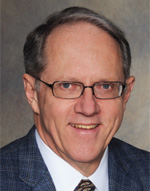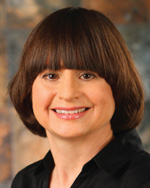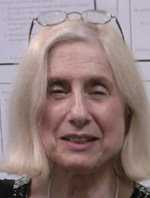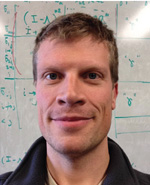So Much to See and Do at JSM: Special Events and Presentations
Statistical Leadership Course Planned for JSM
What Happens at JSM Should Not Stay at JSM
ASA Launches Personal Skills Development Program
Attractions in Boston and Cambridge
New England Attractions: Outside Boston and Cambridge
ASA’s Got Talent Winners
With more than 3,000 presentations taking place during the Joint Statistical Meetings, it is hard to decide which sessions to attend and which activities to undertake. This year is particularly special because we’re celebrating our 175th anniversary and have a slew of activities planned for the celebration.
There is the invited session “Energize Our Future” with Jessica Utts of the University of California, Robert Rodriguez of SAS, and Ronald Wasserstein of the ASA. They’ll discuss the future of statistical sciences and who will celebrate the ASA’s 200th anniversary.
In addition, there is the 175th Anniversary Celebration on August 5, right after the president’s address. Register to attend this special event, which will include a champagne toast and performances by the winners of ASA’s Got Talent. Tickets are $20.
You also will want to attend one or more of the following featured presentations. Each one of these speakers is chosen specifically for his or her vast knowledge of statistics and dedicated work in the field.
ASA PRESIDENT’S INVITED ADDRESS
 Stephen Stigler
Stephen Stigler
The Seven Pillars of Statistical Wisdom
Monday, August 4, 4:00 p.m.
Stephen M. Stigler earned his PhD from the University of California at Berkeley with a dissertation on the asymptotic distribution of linear functions of order statistics. Subsequent work extended these results and developed further contributions to statistical theory with a special emphasis on robust procedures. He initially taught at the University of Wisconsin, Madison, but moved to The University of Chicago in 1979, where he has taught ever since.
During the 1980s, Stigler’s research emphasis moved to the history of statistics, and he has contributed to this area through a large number of research papers and two books: The History of Statistics (1986) and Statistics on the Table (1999), both published by Harvard University Press. This historical research has focused on the years 1600–1950, and one emphasis has been on the spread of statistical methods from the physical sciences of astronomy and geodesy to the social sciences during the nineteenth century. Another recent focus has been on the way the work of Francis Galton on the statistics of inheritance led to the creation of modern multivariate analysis and made true Bayesian inference possible. He also has focused on how R. A. Fisher’s transformation of Karl Pearson’s path-breaking research led to a modern period of statistical enlightenment.
Stigler is an elected member of the American Academy of Arts and Sciences and American Philosophical Society. He has served as president of the Institute of Mathematical Statistics and International Statistical Institute. He also has been a Guggenheim Fellow, a fellow at the Center for Advanced Study in the Behavioral Sciences at Stanford, and a visiting scholar at l’Ecole des Hautes Etudes en Sciences Sociales, Paris. He received the Humboldt Foundation Research Award in 2005 and was elected Membre Associé of the Académie royale de Belgique, Classe des Sciences, in 2010. Stigler served as Theory and Methods Editor for the Journal of the American Statistical Association from 1979–1982 and was chosen as Outstanding Statistician of the Year by the ASA’s Chicago Chapter in 1993.
ASA PRESIDENTIAL ADDRESS AND FOUNDER & FELLOWS RECOGNITION
 Nathaniel Schenker
Nathaniel Schenker
Why Your Involvement Matters
Tuesday, August 5, 7:00 p.m.
Nathaniel Schenker is president of the American Statistical Association, associate director for research and methodology at the National Center for Health Statistics, Centers for Disease Control and Prevention*, and adjunct professor in the Joint Program in Survey Methodology, University of Maryland. His research interests include handling incomplete data, census and survey methods, survival analysis, statistical computation, and applications of statistics to the health and social sciences.
Schenker is serving his third term on the ASA board of directors and is a member of the Committee on National Statistics Panel to Review the 2010 Census, the organizing committee for the Committee on Applied and Theoretical Statistics workshop, the Office of Management and Budget’s Federal Committee on Statistical Methodology, and the editorial board of the Journal of Survey Statistics and Methodology. Previously, he was the program chair of JSM 2002 and an associate editor of the Journal of the American Statistical Association, Journal of Official Statistics, and Survey Methodology.
Schenker is a fellow of the ASA and an elected member of the International Statistical Institute and Delta Omega honorary public health society. He received the Roger Herriot Award for Innovation in Federal Statistics and the Founders Award for distinguished service, both from the ASA. He also received the Elijah White Outstanding Scientist Award from the National Center for Health Statistics. He earned his SM and PhD degrees in statistics from The University of Chicago and his AB in statistics from Princeton University.
*Schenker serves as president of the ASA in his personal capacity. The views to be expressed in his presidential address are his own and do not necessarily represent the views of the Centers for Disease Control and Prevention or the United States Government.
ASA DEMING LECTURE
 Sharon Lohr
Sharon Lohr
Red Beads and Profound Knowledge: Deming and Quality of Education
Tuesday, August 5, 4:00 p.m.
Sharon Lohr joined Westat in 2012 as vice president and senior statistician after a 25-year academic career, most recently as Dean’s Distinguished Professor of Statistics at Arizona State University. She earned her PhD in statistics from the University of Wisconsin-Madison, where she met Deming and learned his philosophy. She authored Sampling: Design and Analysis and has published numerous articles about survey sampling, hierarchical models, missing data, design of experiments, and applications of statistics in the social sciences and education.
Lohr is an editor of the new American Statistical Association journal Statistics and Public Policy and is an associate editor for the Journal of Survey Statistics and Methodology and Annals of Applied Statistics. She is a fellow of the American Statistical Association, an elected member of the International Statistical Institute, the 2009 recipient of the Morris Hansen Lecture Award, and the inaugural 2003 recipient of the Gertrude M. Cox Statistics Award for contributions to the practice of statistics.
COPSS FISHER LECTURE
 Grace Wahba
Grace Wahba
Positive Definite Functions, Reproducing Kernel Hilbert Spaces, and All That
Wednesday, August 6, 4:00 p.m.
Grace Wahba is the I. J. Schoenberg-Hilldale Professor of Statistics at the University of Wisconsin-Madison, where she is also a member of the departments of computer sciences and biostatistics and medical informatics. She is a pioneer in methods for smoothing noisy data and in the use of reproducing kernel Hilbert space methods in ill-posed inverse problems and statistical machine learning. Together with George Kimeldorf (1971) she is responsible for the representer theorem, which is behind many modern statistical model building and machine learning methods. Also well known for the development of generalized cross-validation, she has developed methods with applications in demographic studies, machine learning, DNA microarrays, risk modeling, medical imaging, and climate prediction.
Wahba earned her BA from Cornell in 1956, her MA from the University of Maryland in 1962, and her PhD from Stanford in 1966. She worked in industry for several years before settling in Madison in 1967. She is the author of Spline Models for Observational Data and about 140 peer-reviewed papers.
Wahba was elected to the United States National Academy of Sciences in 2000 and received the honorary degree of Doctor of Science from The University of Chicago in 2007. According to the Mathematical Genealogy Project, she has graduated 34 students and has 198 descendants. When not doing statistics, she enjoys bicycle touring, ballroom dancing, and cross-country skiing with her long-term partner, David Callan, and following the exploits of her three grandchildren.
IMS BLACKWELL LECTURE
 Gareth Roberts
Gareth Roberts
Rao-Blackwellisation for Improved Monte Carlo for Stochastic Processes
Sunday, August 3, 4:00 p.m.
Gareth Roberts is professor of statistics and director of the Centre for Research in Statistical Methodology at the University of Warwick, United Kingdom. He earned his PhD from Warwick before holding academic positions at Nottingham, Cambridge, and Lancaster, finally returning to Warwick in 2007.
Roberts’ research interests span statistics and probability, including computational statistics, Bayesian inference, simulation, and inference for stochastic processes. He was awarded the Royal Statistical Society Guy medals in bronze and silver in 1997 and 2008, respectively, and elected fellow of the Royal Society in 2013.
IMS MEDALLION LECTURE
 Mathias Drton
Mathias Drton
What Do We Know About Linear Structural Equation Models?
Monday, August 4, 10:30 a.m.
Mathias Drton is professor of statistics at the University of Washington. A native of Germany, he earned his PhD in statistics from the University of Washington. A native of Germany, he earned his PhD in statistics from the University of Washington in 2004. After a postdoc at the University of California at Berkeley, he spent seven years at The University of Chicago before returning to Washington in 2012.

















